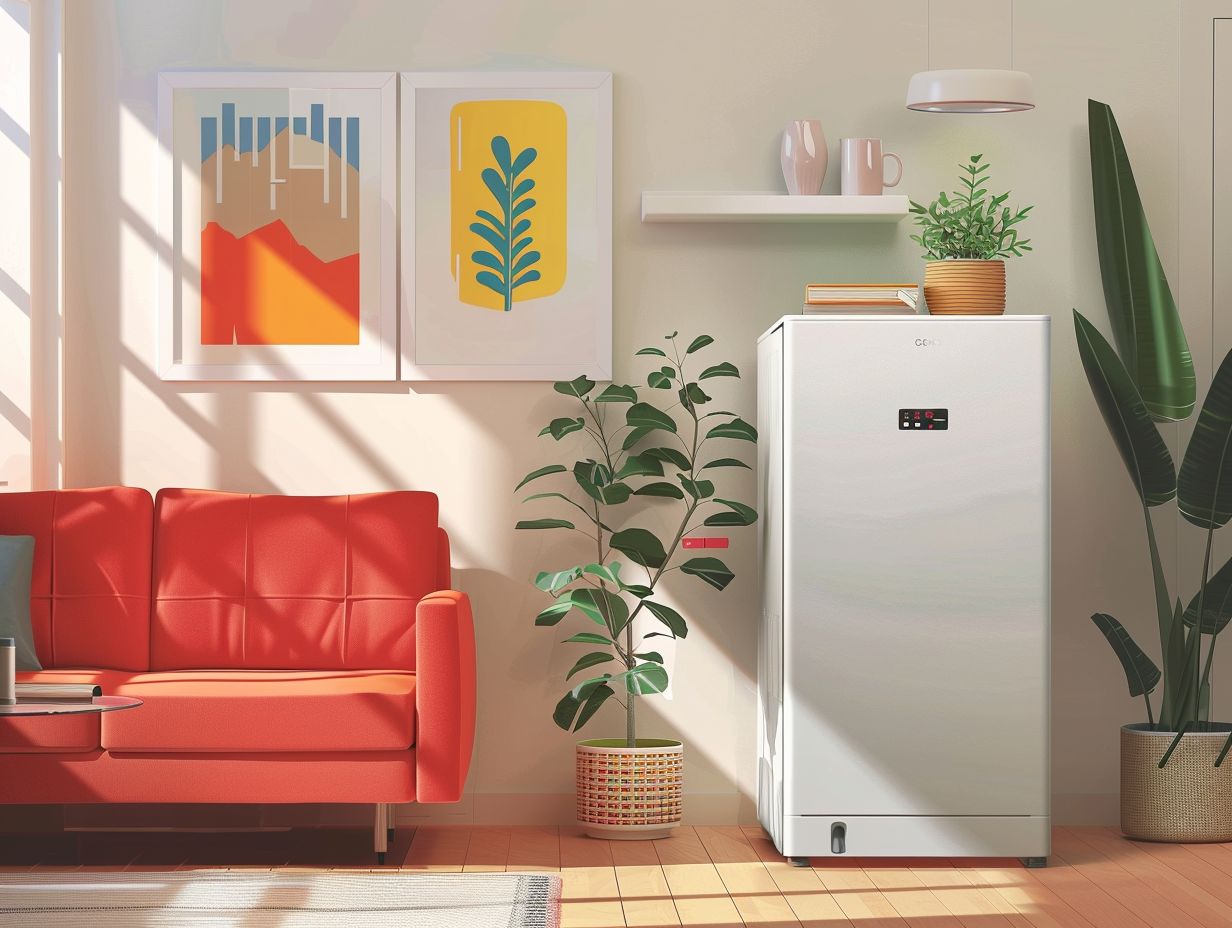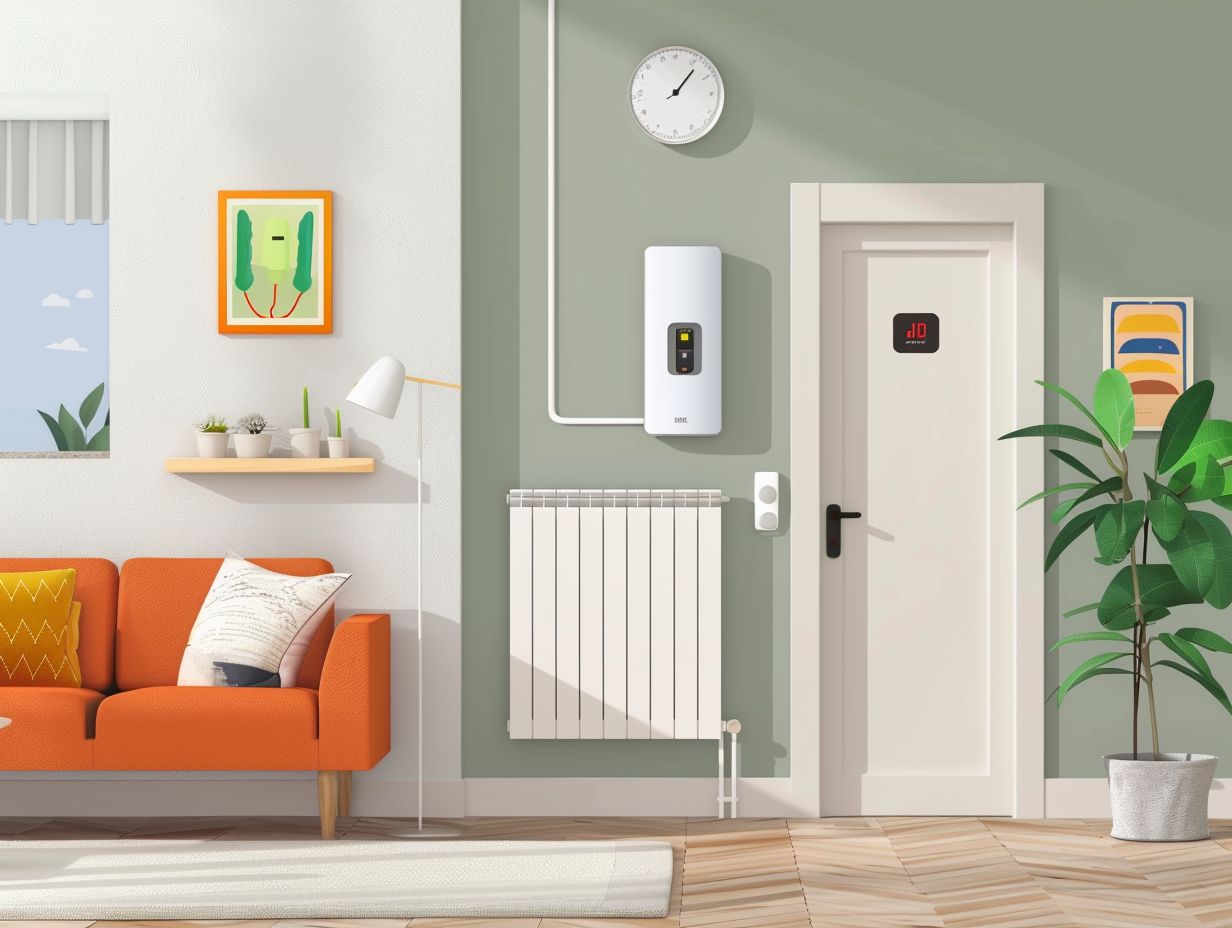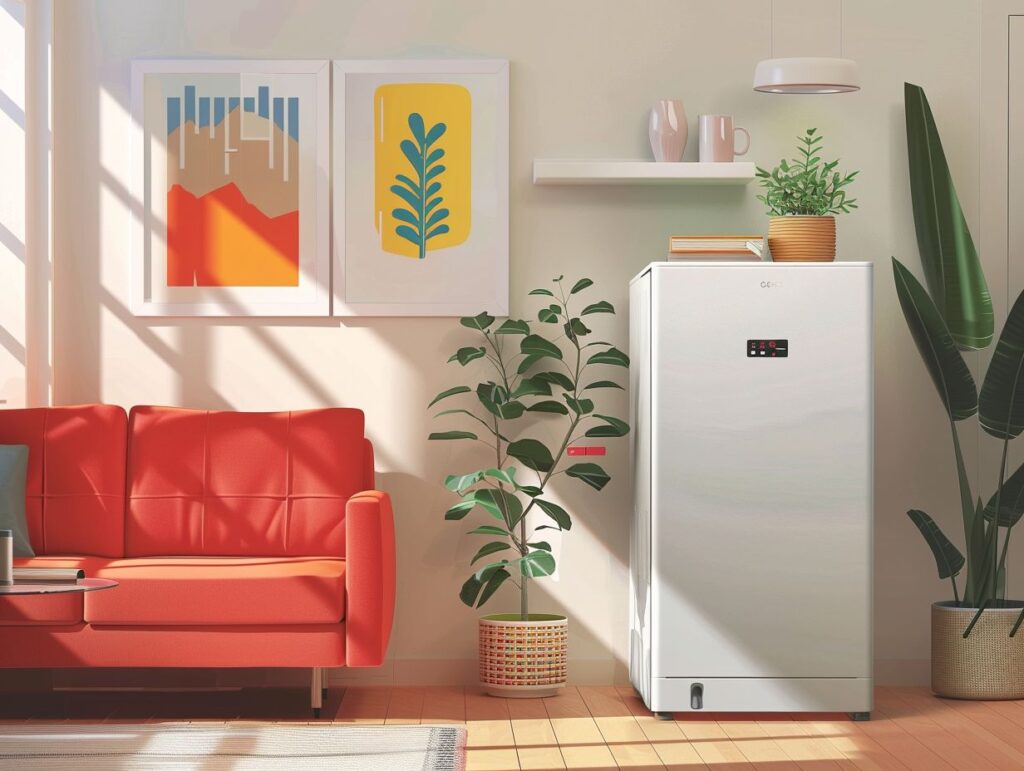Electric heating is a popular option for many homeowners due to its energy efficiency and cost savings. However, there are drawbacks to consider, such as high upfront costs and limitations in extreme temperatures.
In this article, you will explore the basics of electric heating, how it works, its advantages, disadvantages, and factors that can affect its efficiency. Whether you are considering electric heating for your home or simply want to learn more about it, this article will provide valuable insights.
Key Takeaways:
 1.
1.
- Electric heating offers energy efficiency and cost savings compared to other heating options, making it a viable option for homeowners looking to save money on their heating bills.
- While electric heating has a lower environmental impact compared to fossil fuel-based heating, it is still important to consider the source of electricity and opt for renewable sources when possible.
- Factors such as home insulation, design, and usage patterns can greatly impact the efficiency of electric heating, making it important to consider these factors when choosing a heating system.
Advantages of Electric Heating
Electric heating offers you several advantages, including high energy efficiency and cost savings stemming from its precise control over heating output and usage. When powered by renewable energy sources, electric heating systems can have a positive environmental impact.
Features like 24/7 programming and Smart meters enhance the efficiency and convenience of electric heating, making it a wise choice for modern homes.
By utilising electric heating, you have the ability to set customised schedules and temperature settings, allowing you to optimise your energy usage and reduce wastage.
Integration with renewable energy sources such as solar panels or wind turbines makes electric heating even more eco-friendly, helping minimise carbon emissions and contributing to a sustainable living environment.
The compatibility of electric heating systems with Smart meters give the power tos you to monitor and adjust your energy consumption in real time, supporting efficient energy management and potentially reducing utility bills.
Energy Efficiency and Cost Savings
Electric heating systems excel in energy efficiency when utilised effectively, providing a consistent warmth level while offering precise control over heating capabilities. By optimising energy consumption and incorporating technologies such as infrared panels, these systems can deliver long-term cost savings.
Leveraging Economy tariffs can further enhance the efficiency of electric heating, ensuring economical operation. You have the advantage of controlling the temperature in specific zones of your home with electric heating systems, enabling targeted heating that avoids unnecessary energy consumption in unused areas.
Infrared panels, recognised for their rapid heat transfer and minimal heat loss, contribute to the overall efficiency of these systems.
Economy tariffs play a critical role in optimising energy usage by providing reduced rates during off-peak hours, promoting users to schedule heating activities accordingly.
This proactive strategy not only minimises environmental impact but also leads to substantial reductions in overall heating expenses over time.
Environmental Impact

Electric heating systems contribute to a reduced environmental impact by minimising carbon dioxide emissions, which play a significant role in global warming. When powered by renewable energy sources, electric heating becomes a carbon-free heating solution, aligning with efforts to combat climate change and promote sustainability.
The adoption of electric heating systems helps reduce overall greenhouse gas emissions, as they do not rely on fossil fuels like oil or natural gas.
This transition to renewable energy sources offers a cleaner alternative, decreasing the dependency on finite resources and decreasing the carbon footprint of heating systems.
By embracing these eco-friendly heating solutions, you and your community can take proactive steps towards achieving a more sustainable future and protecting the planet for generations to come.
Factors Affecting Efficiency
Several factors influence the efficiency of electric heating systems, including the level of insulation in your property and its overall design.
Your usage patterns as a homeowner and regular maintenance also play crucial roles in optimising the performance and energy efficiency of your electric heating systems.
The quality of insulation in your home directly impacts your system’s ability to retain heat, reducing energy loss and minimising the workload on the heating unit.
Properly insulated homes like yours can maintain a more stable indoor temperature, leading to lower energy consumption and costs. The design of your property, such as the layout and size of rooms, can affect how well the heat is distributed throughout the space, influencing the overall efficiency of your heating system.
Insulation and Home Design

Effective insulation and a well-designed home layout are crucial aspects that influence the efficiency of your electric heating systems.
Proper insulation helps in maintaining consistent heat output and retention, while the design of your property impacts the distribution of warmth throughout different surfaces and rooms.
Incorporating high-quality insulation materials can significantly reduce heat loss, ensuring that the warmth generated by your electric heating systems is not wasted. A thoughtfully planned home design can facilitate the even distribution of heat, preventing any cold spots and enhancing overall comfort.
By strategically placing insulation barriers and optimising the layout to promote efficient airflow, you can maximise the effectiveness of your electric heating setup, resulting in a cosy and energy-efficient living environment.
Usage Patterns and Maintenance
To maximise energy-saving benefits, it is crucial for you to understand and adjust your usage patterns whilst regularly maintaining your electric heating systems.
By utilising features such as digital thermostats and WiFi control, you can enhance the efficiency and convenience of managing your electric systems. This will ensure optimal performance and energy conservation.
By monitoring your usage patterns and implementing energy-saving practices, you can significantly reduce your electricity consumption whilst maintaining a comfortable indoor environment. The integration of digital thermostats allows for precise temperature control, which helps prevent unnecessary energy wastage.
Additionally, WiFi control enables remote access and adjustment of heating settings, encouraging a more proactive approach to energy conservation. These innovative technologies not only streamline heating system operation but also contribute to a more sustainable and cost-effective household energy management strategy.
Frequently Asked Questions
How Efficient Is Electric Heating?
Electric heating can be an efficient way to heat your home or business. However, its efficiency can vary depending on a few key factors. Here are some frequently asked questions about electric heating efficiency and their answers.
What is the efficiency of electric heating compared to other types of heating systems?
The efficiency of electric heating is generally higher than other types of heating systems, such as gas or oil furnaces. This is because electric heating does not require a conversion process, as the electricity is converted directly into heat, resulting in less energy loss.
What factors can affect the efficiency of electric heating?

The efficiency of electric heating can be affected by several factors, including the type of electric heating system (e.g. baseboard heaters, heat pumps), the temperature outside, the size and insulation of the building, and how often and how long the heating system is used.
Is electric heating more efficient for certain types of buildings?
Electric heating is generally more efficient for smaller buildings or spaces, as the heat does not have to travel far to reach all areas. However, with advancements in technology, electric heating can also be efficient for larger buildings when paired with energy-saving features such as zoning and programmable thermostats.
How can I increase the efficiency of my electric heating system?
To increase the efficiency of your electric heating system, you can make sure to properly insulate your building, regularly maintain and clean your heating system, and use energy-saving features such as programmable thermostats and zoning. Additionally, using renewable energy sources to power your electric heating can also increase its efficiency.
Does the cost of electricity affect the efficiency of electric heating?
Yes, the cost of electricity can impact the efficiency of electric heating. If the cost of electricity is high, it may be more expensive to run an electric heating system compared to other types of heating systems. However, with proper energy-saving practices and the use of renewable energy sources, the overall efficiency and cost of electric heating can be improved.
Are there any government programs or incentives for using electric heating?
Yes, there are various government programs and incentives available for using electric heating. These can vary depending on your location, but some examples include tax credits, rebates, and grants for purchasing energy-efficient electric heating systems or making energy-saving improvements to your building. It is worth researching what programs are available in your area to potentially save on the cost and increase the efficiency of your electric heating system.

